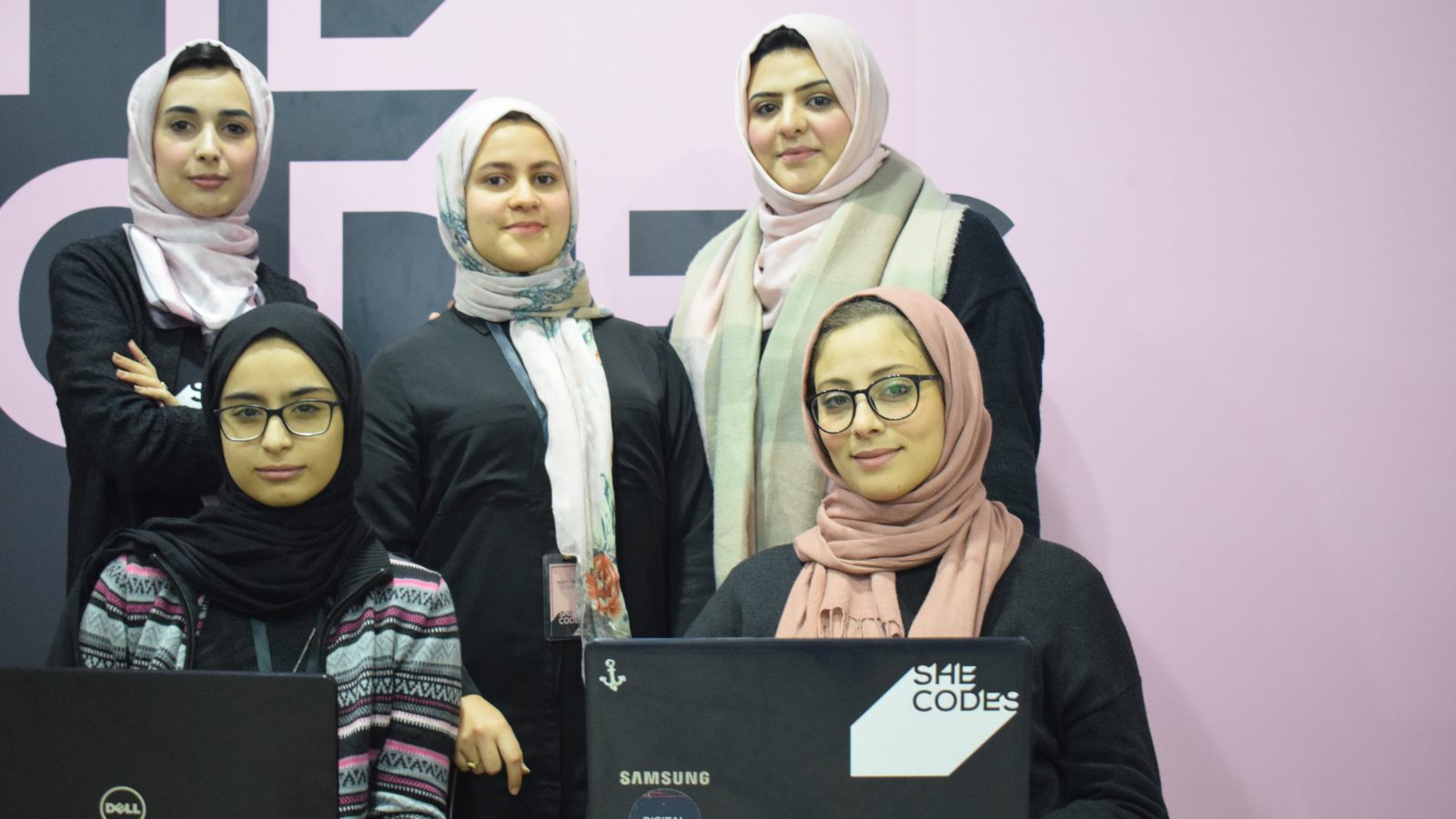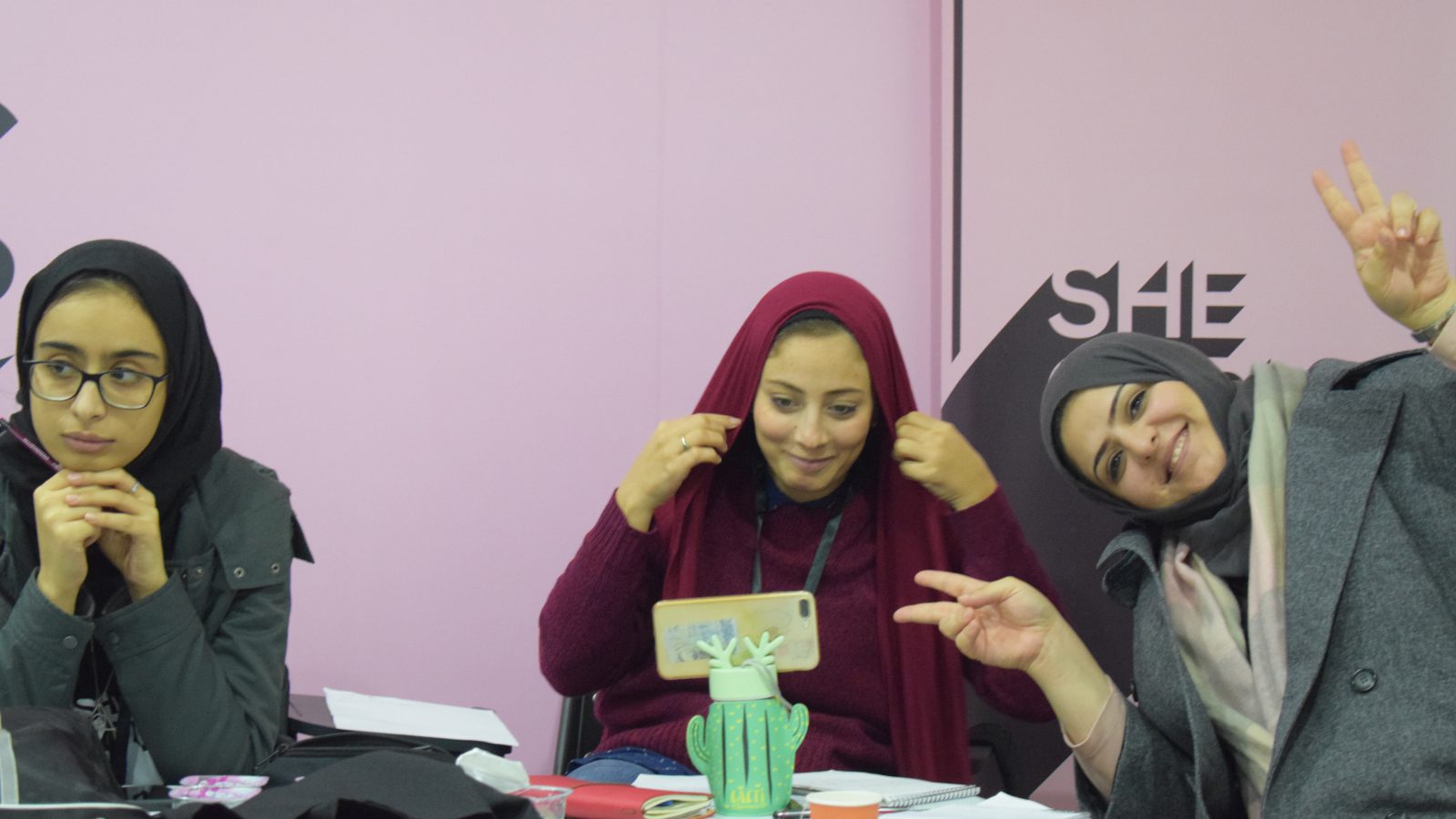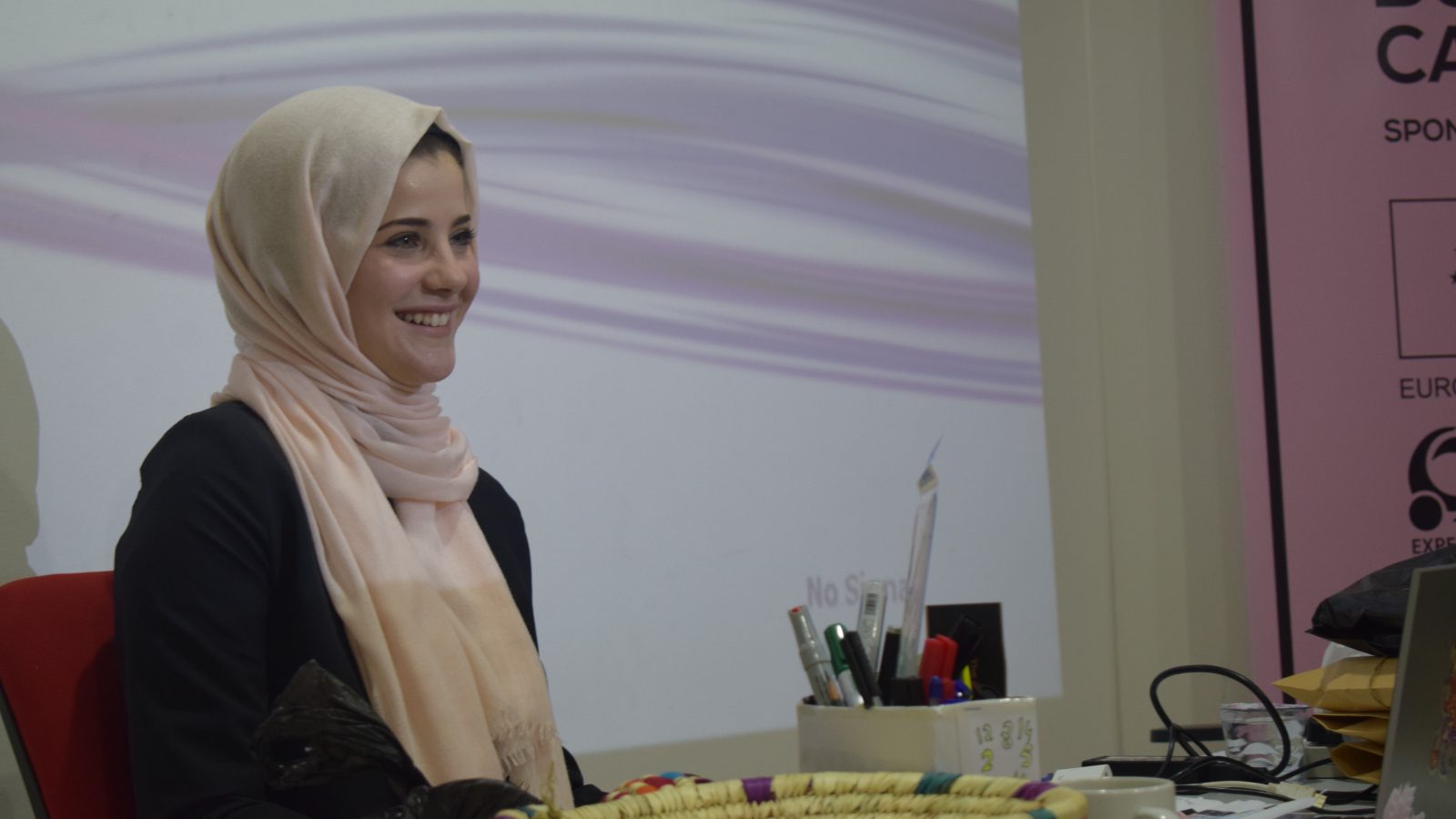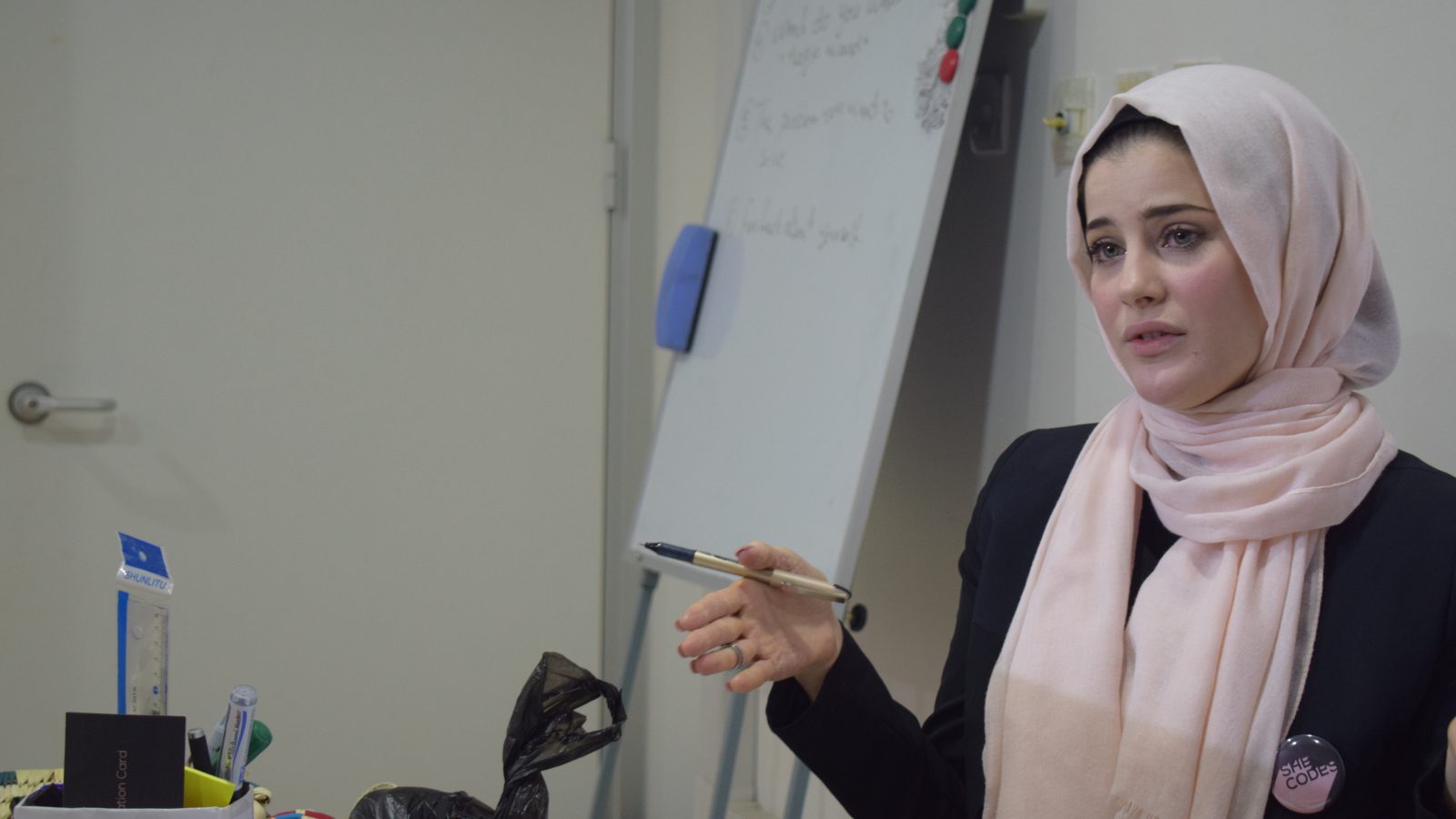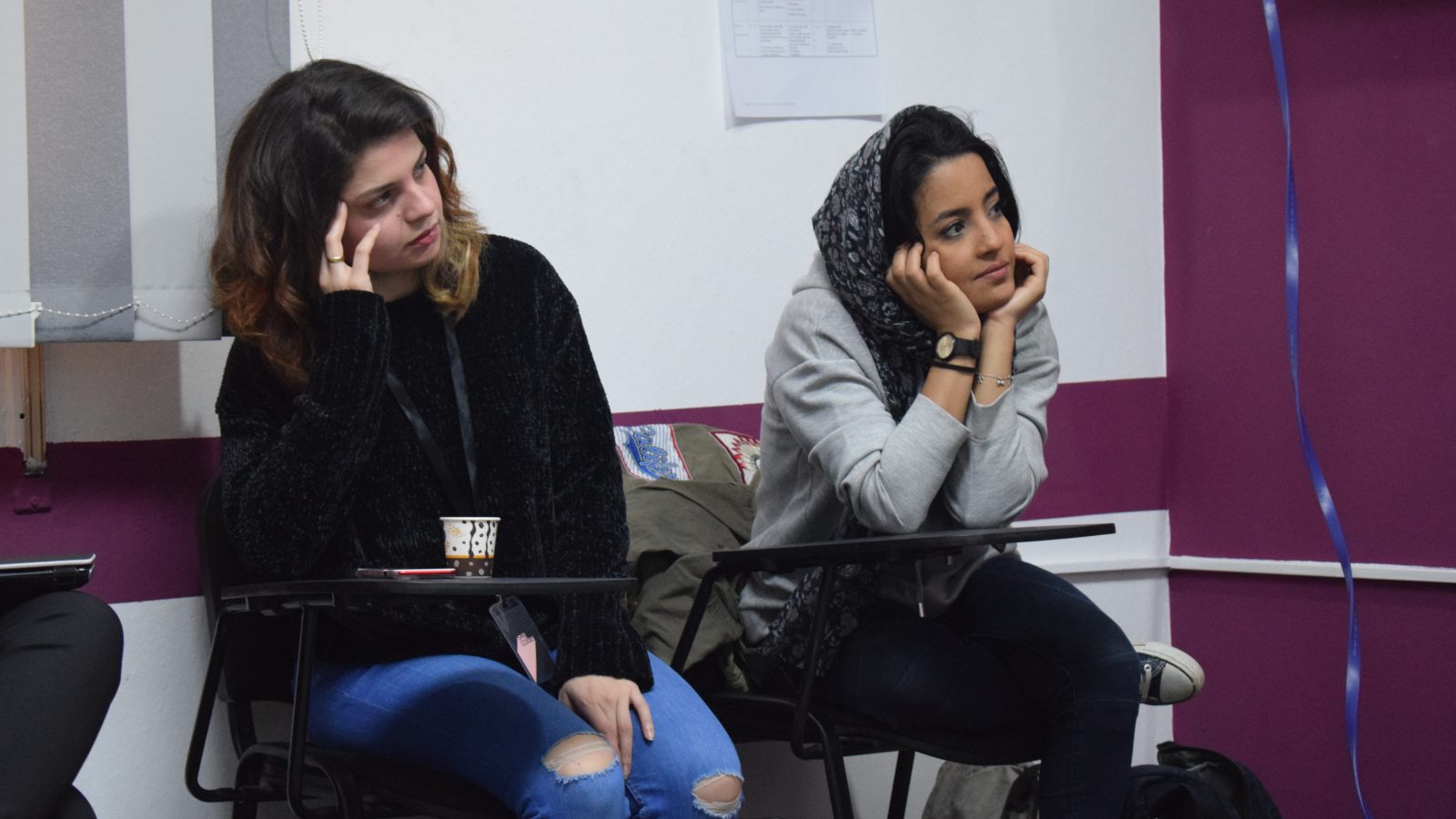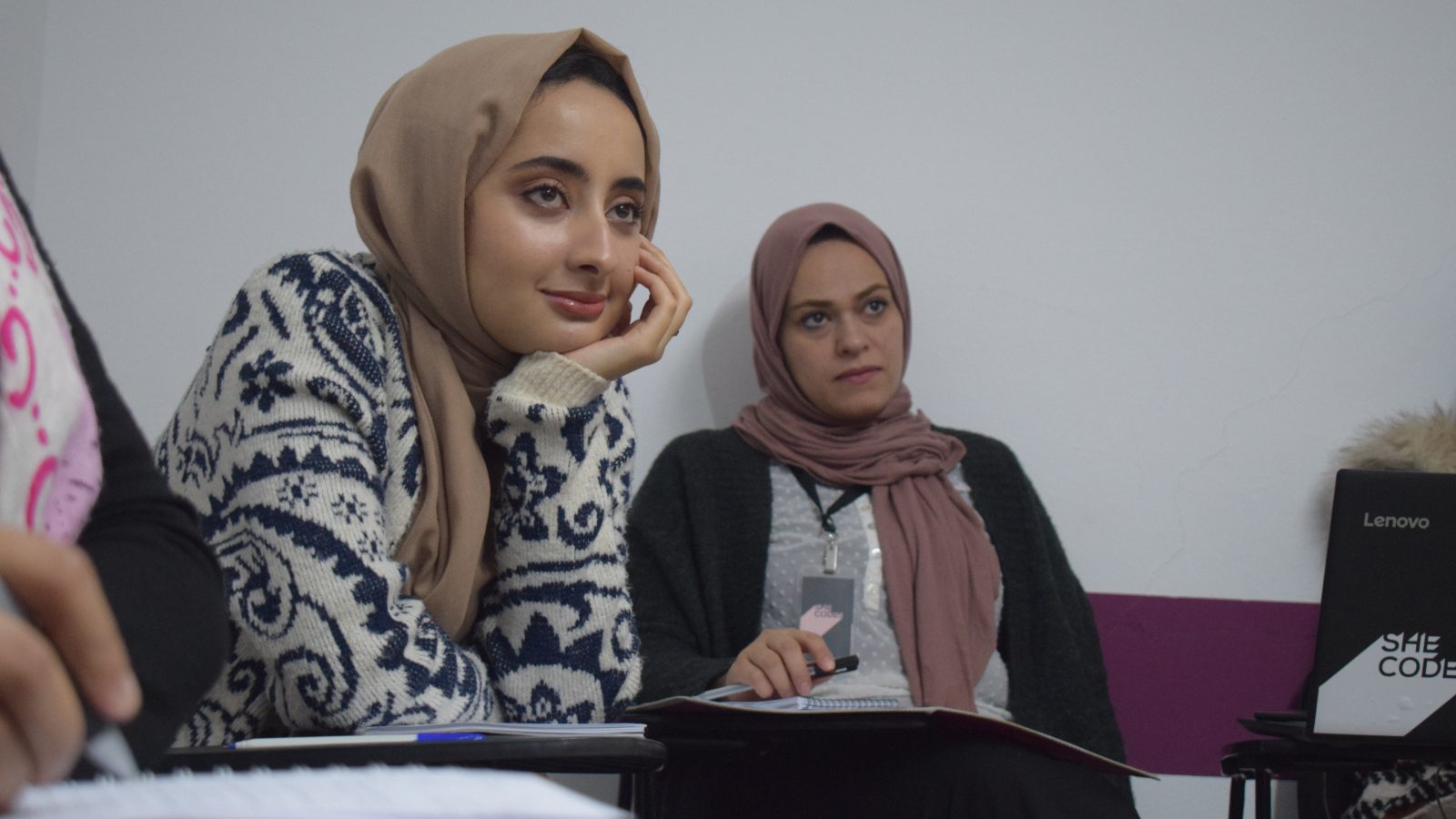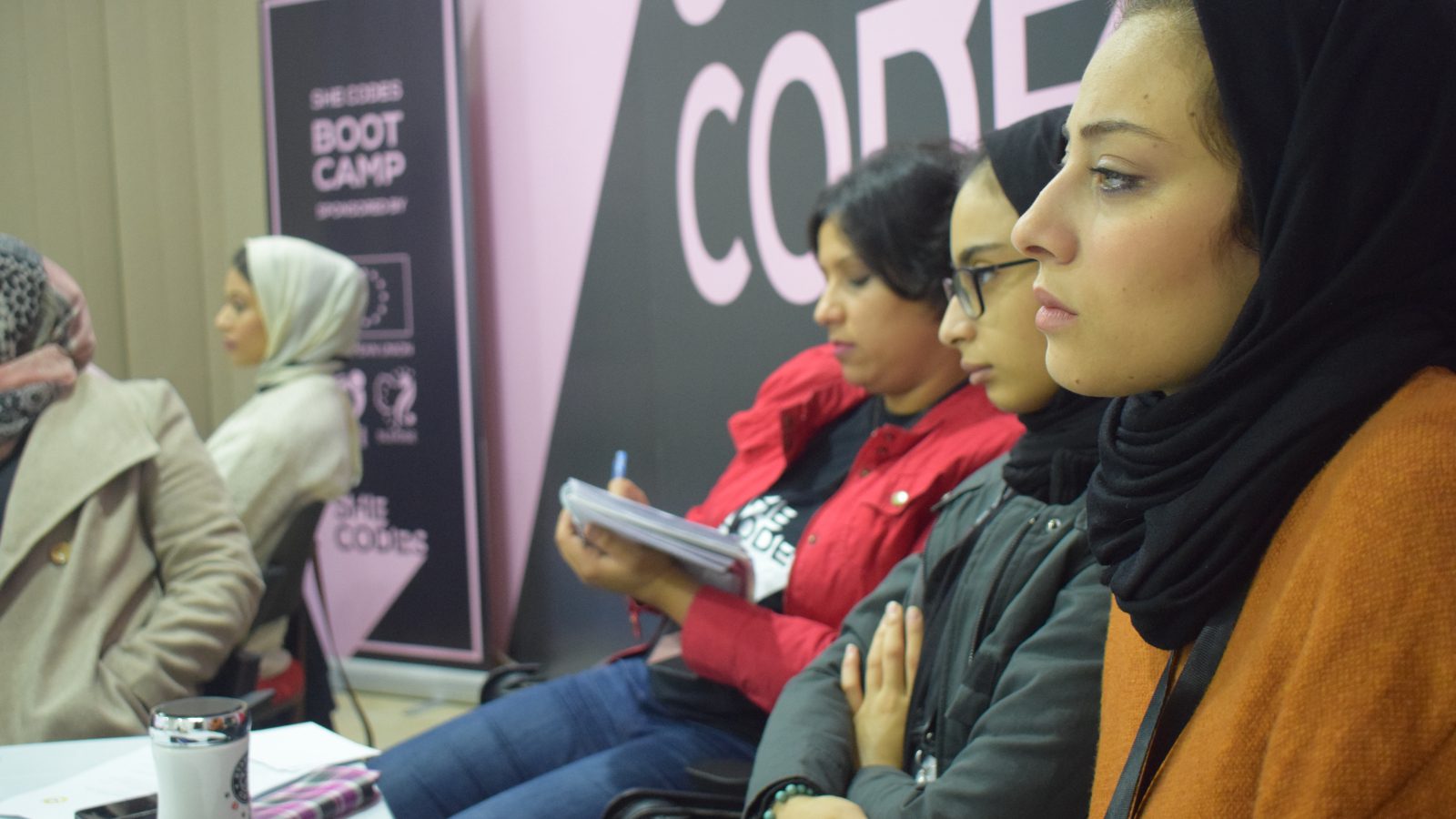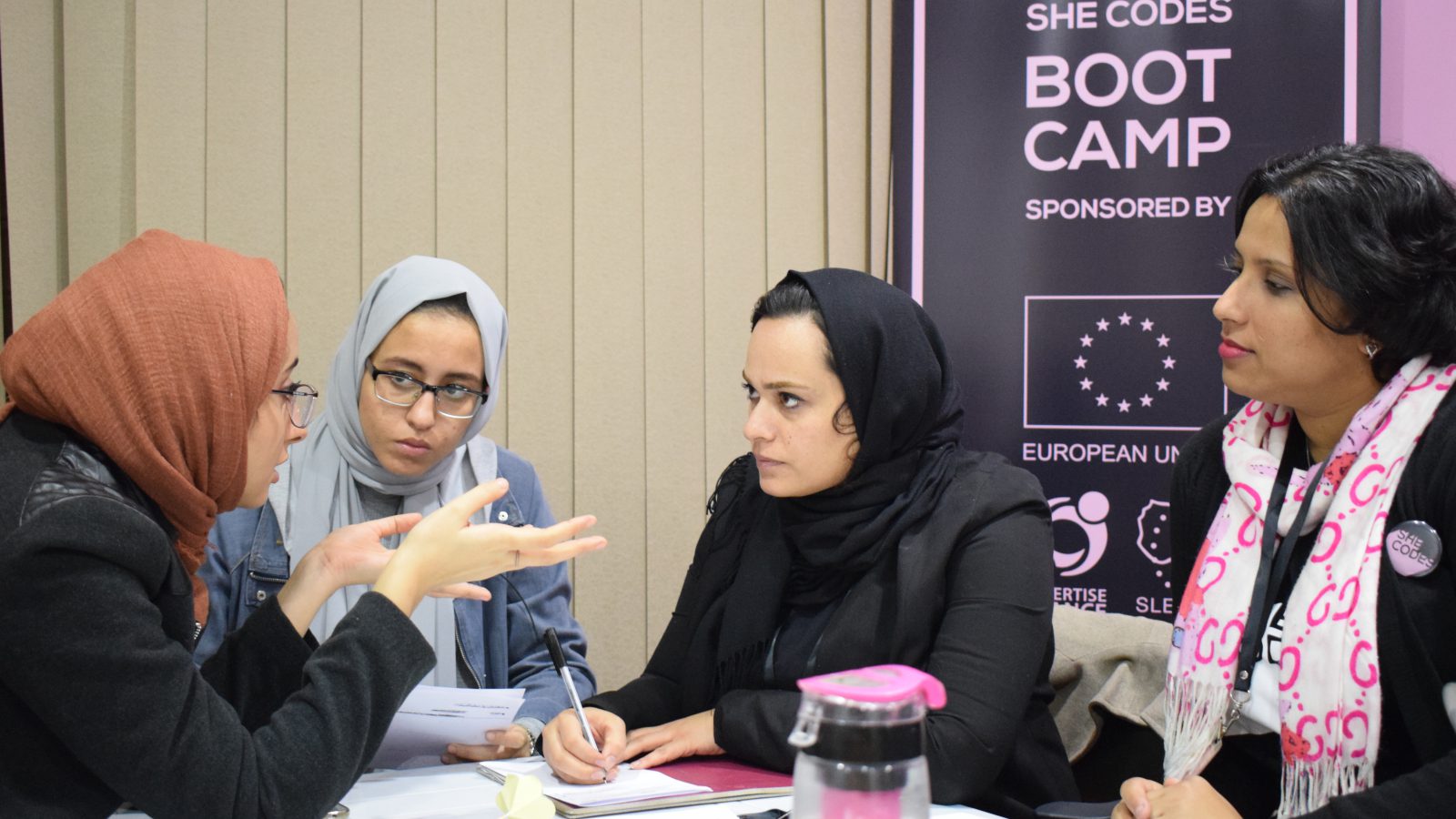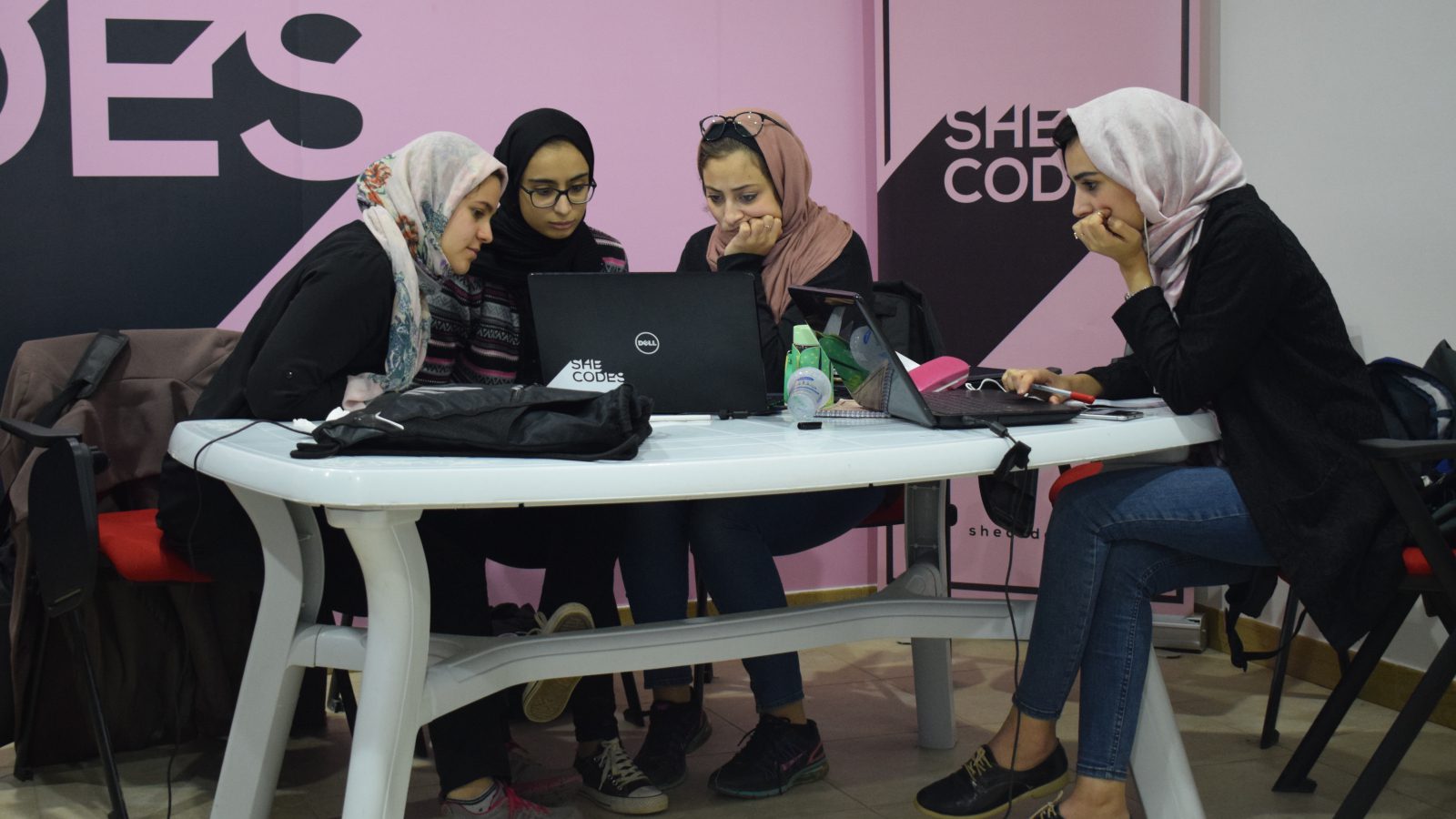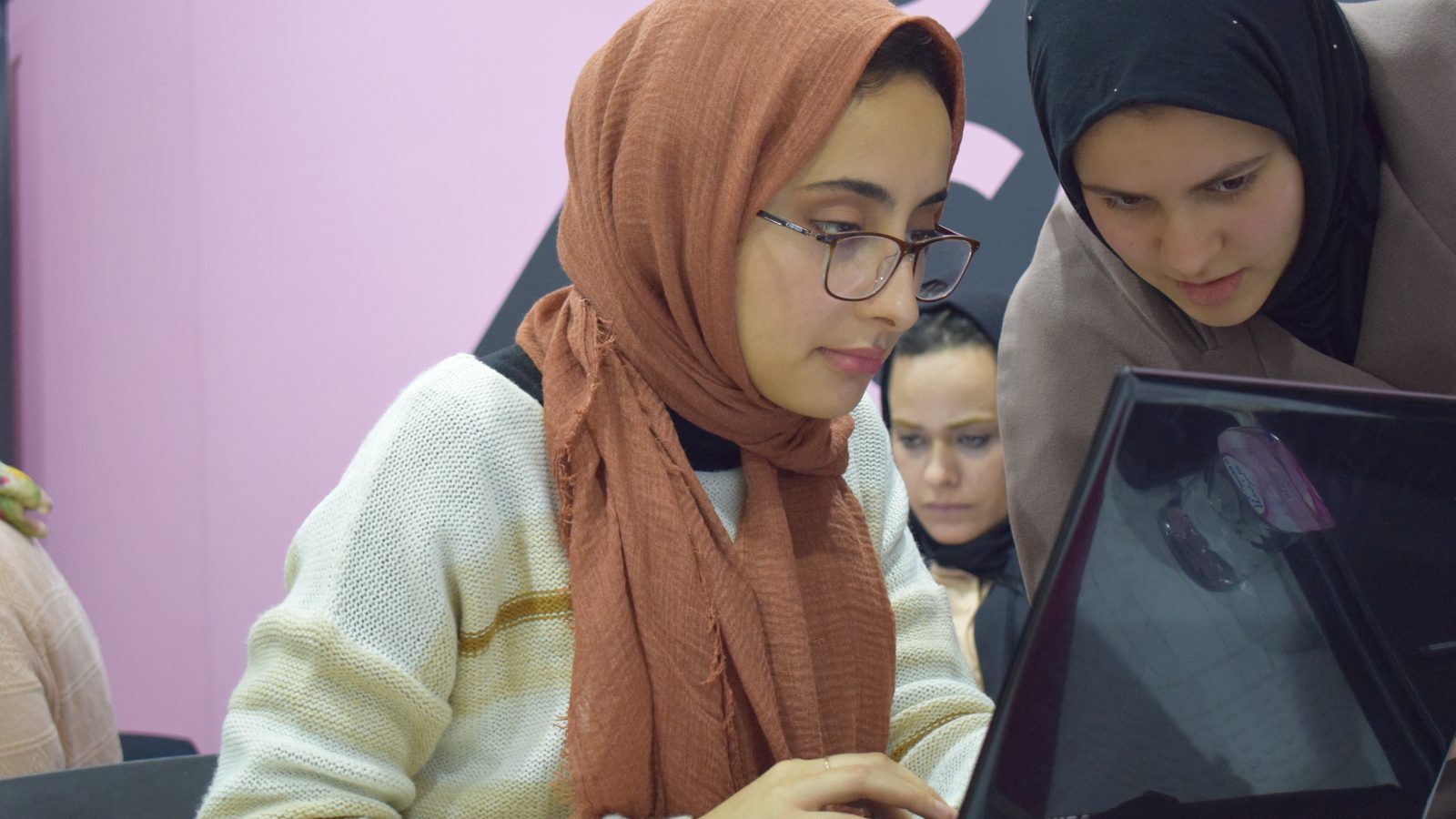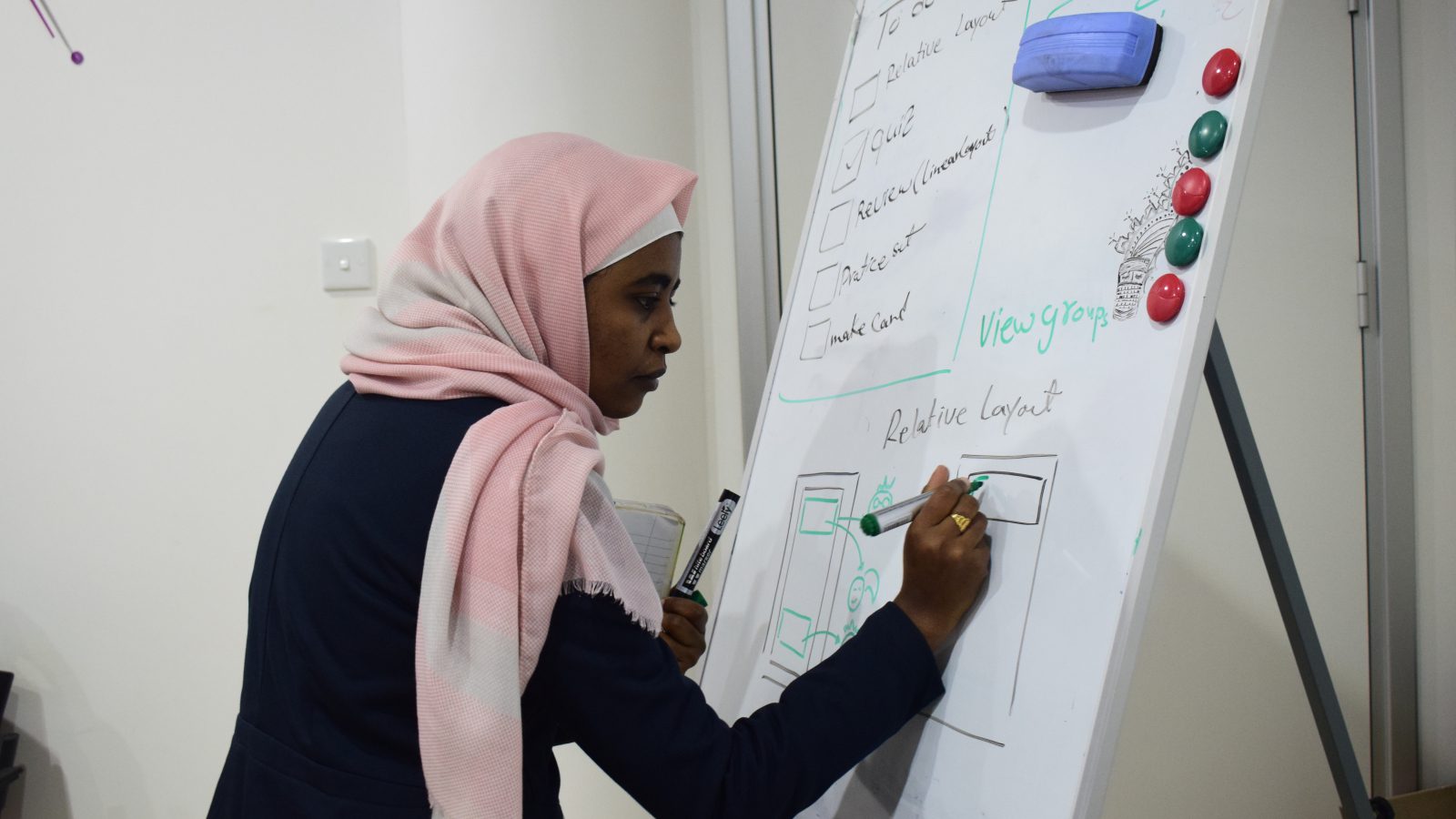She Codes: The European Union empowers Libyan Women through technology and entrepreneurship
“She Codes” aims at training Libyan women on computer programming and coding, providing them with the necessary skills which will empower and help them to become independent. The project helps Libyan women to better access the job market, which will ultimately contribute to the overall development of the country. The European Union made an important contribution to the success of “She Codes” by providing training via the “Support to Libya for Economic Integration, Diversification and Sustainable Employment” (SLEIDSE) programme implemented by Expertise France.
Project idea
Libyan cities, mainly Benghazi, have considerably suffered from armed conflicts. Nevertheless, some ambitious and highly motivated young people started to think about how they could contribute to the reconstruction of their country and to a more promising and brighter future.
Najla Almissalati is one of them. A young lady from Benghazi highly interested in technology, she holds a bachelor’s degree in telecommunications from the University of Benghazi and has worked in the fields of training, education and consultancy.
Through her experience, Nejla became aware of the limited participation of women in the job market, notably in the field of programming and coding. Therefore, she wanted to encourage women to learn more about coding techniques – as she strongly believes this will create better job prospects for them. Najla’s objective is fundamentally a social one: to support and reinforce women’s technical skills to create quality jobs for them in the future.
“I thought about an initiative that would contribute to empowering Libyan women by giving them technological skills requested by the private sector, which is eager to find qualified designers and developers of websites and smartphone applications. So, I launched the “She Codes” project, Najla said.
The long and difficult journey of Libyan entrepreneurs
When Najla started “She Codes” in Benghazi at the beginning of 2018, she did not have all the required skills, but she was determined to succeed. She looked for appropriate training opportunities on coding and programming until she found a twelve-month course on the Internet, provided by the African Entrepreneurship Development Association.
But Najla did not stop there: she kept on looking for additional training opportunities and was able to join a second three-month course offered by the EU-funded SLEISDE project.
Nessrin Gaddah, expert in Communication and Entrepreneurship at the SLEIDSE project explains that: “We have always believed in young entrepreneurs who continue their journey despite hurdles and constraints. Najla was for us such a bright example: as soon as she completed her training, she started developing her project and quickly managed to become a qualified trainer/consultant in the field of coding and successfully organise her first training activities.
The bootcamp
Najla’s first initiative was the organisation of a “bootcamp”; a training programme where participants are trained on basic web design and smart application techniques, data security, and basics of commercial and marketing activities. After announcing the bootcamp on the website of “She Codes” in mid-2018, more than 300 women applied to attend the training camp and 20 were finally selected. The training session started on November 2018 in the Development Centre of Benghazi and lasted for four weeks.
The training also included basic concepts of graphic design, creative writing techniques, and speaking in public, which are essential skills in the business world. A yoga class at the end of each training session took place to improve the physical and mental health of the participants.
Technical skills for a brighter future
Sara, one of the trainees, said: “All the participants were curious and excited to learn the new topics. We were all extremely happy when we completed our first training sessions – the weeks went by so quickly! We met several great trainers, who didn’t spare efforts to share their knowledge and experience with us. They told us about their own motivations and struggles and we would go back home every day full of energy and excitement to work and to ensure a brighter future for our families and our country.”
Sara also added: “the strength of this program lies in its interactive approach: Every theoretical course was followed by a practical exercise. It provided me with the tools, knowledge and willingness to continue education in an area that I truly like. More importantly, I regained self-confidence. I am very grateful for having been part of this program. I made friends for life and I feel lucky that I didn’t miss an opportunity that may not come back soon.”
Najla and her team are keen to continue and expand their project. They are planning to launch a branch office of “She Codes” in Tripoli, and later in several other cities and villages. Najla is confident that the “She Codes” initiative will reach out to more than 700 women by the end of 2019 to provide them with basic skills in programming and coding. More than 2600 women will be trained within the next five years, which will help to create more than 1000 sustainable jobs.
The European Union – supporting young Libyan entrepreneurs in difficult times
The critical economic situation in Libya constitutes a major obstacle faced by many Libyan start-ups, who also face difficulties in accessing funding and in dealing with complex administrative procedures. As Najla points out: “There are ideas and plans that are frozen and may probably never see the light due to the current difficult economic conditions and the absence of financing opportunities. Hadn’t we received this opportunity to work with the SLEIDSE project, we would not have been able to hold a bootcamp in Benghazi… I was really happy to know that SLEIDSE decided to support “She Codes”, and that the European Union gave us this opportunity.”
SLEIDSE – Support to Libya for Economic Integration, Diversification and Sustainable Employment
SLEIDSE is a 4-year program that aims to promote the development of dynamic and diversified micro, small and medium enterprises (MSMEs) in all regions of Libya, capable of creating employment and livelihoods for Libyans, in particular for women and youth.
The project is funded by the European Union, has a value of 7.6 Million euros and is implemented by Expertise France.




























 Syria
Syria 
